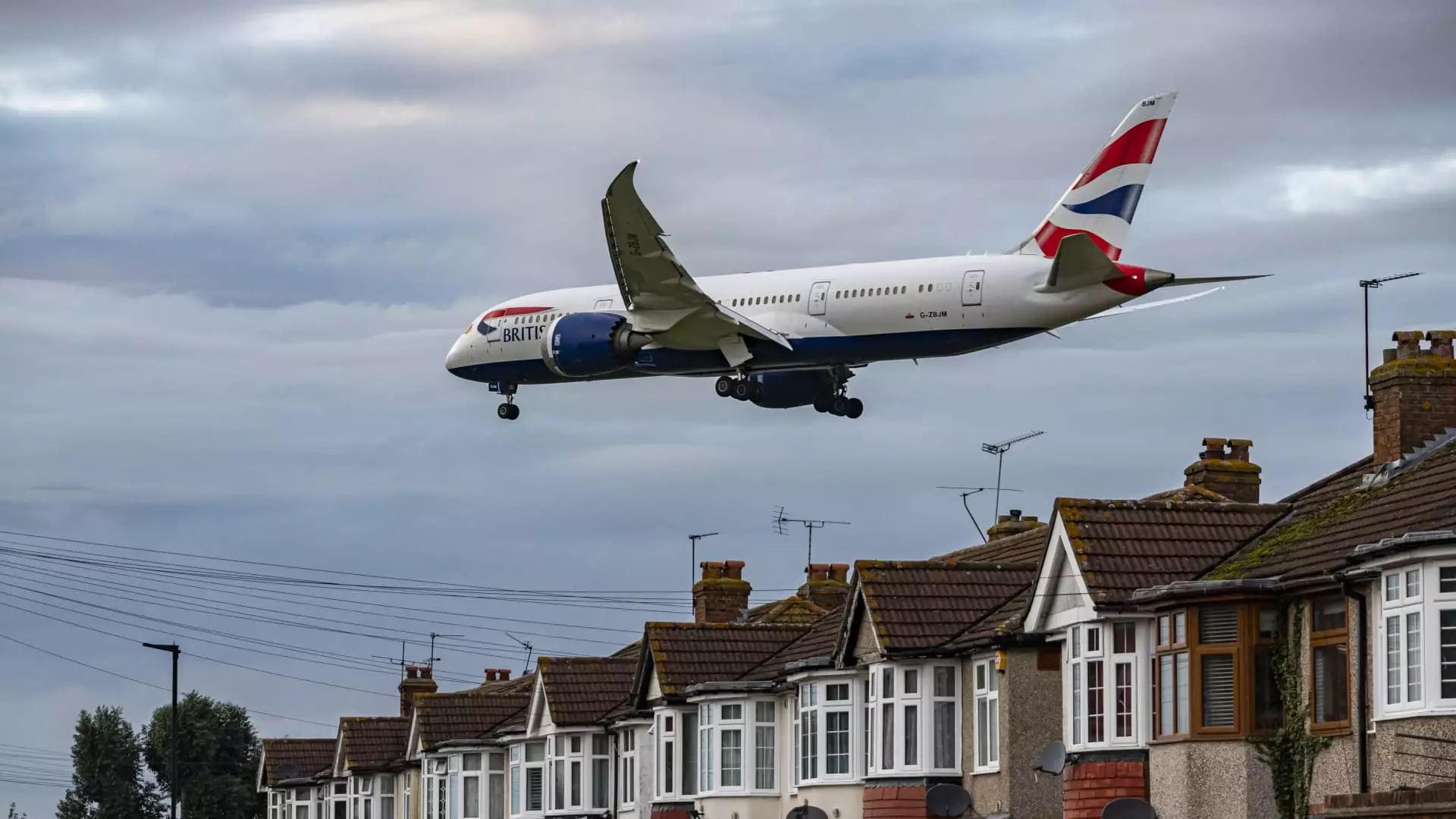In a notable address delivered in Oxfordshire, U.K. Finance Minister Rachel Reeves articulated her commitment to rejuvenate the British economy, which has been languishing in a state of low growth. At the heart of her proposals lies the controversial plan for a third runway at London’s Heathrow Airport, which Reeves emphasized as an essential step towards unlocking economic potential and fostering job creation. With estimates suggesting that this expansion could generate over 100,000 jobs and increase the country’s gross domestic product (GDP) by 0.43% by 2050, the proposed runway has ignited both support and opposition from various sectors.
Reeves pointed to research by Frontier Economics, which posits that the economic benefits of a third runway would extend beyond London, positively impacting regions across the U.K. This statement underscores her intent to address the regional disparities that have often characterized economic growth narratives in the country.
While the third runway is a focal point, Reeves also highlighted ambitious plans to reform the U.K.’s planning system and undertake significant infrastructure projects, such as the redevelopment of Manchester United’s soccer stadium and investment in the Oxford-Cambridge growth corridor. These initiatives collectively form a strategic blueprint aimed at transforming the U.K. into an economically vibrant nation, wherein growth is not merely a goal but a tangible outcome.
In her speech, Reeves asserted that “low growth is not our destiny,” emphasizing that economic recovery would not occur passively but necessitate decisive action. Her commitment to expedite growth aligns with the Labour Party’s broader objectives and reflects a growing recognition of the urgency surrounding economic revitalization.
One of the most contentious aspects of the third runway plan is its environmental implications. While proponents argue that an expanded Heathrow would enhance trade connectivity and job creation, environmental advocates warn that such expansion may compromise the U.K.’s ambitious climate goals. Campaign groups like Friends of the Earth have pointed out that economic growth need not come at the expense of ecological integrity. They argue instead for a green economy that has shown considerable growth, expanding by 9% in 2023 alone.
Reeves defended the potential of merging economic growth with sustainable practices, suggesting that the transition to a net-zero economy could be an “industrial opportunity of the 21st century.” This perspective presents an emerging narrative where economic initiatives undertake a dual role, serving both financial and environmental objectives, although the feasibility of this balance remains under debate.
Reeves’ proposition arrives amid a backdrop of political contention. The former Conservative government’s support for the Heathrow expansion and subsequent studies, such as the Airports Commission report from 2015, which indicated potential benefits surpassing £61 billion, provide a framework for Reeves’ stance. However, opposition parties, including the Conservatives, have raised concerns regarding the Labour Party’s tax policies and their impact on business confidence. Critics argue that while infrastructure investment is essential for economic growth, it cannot thrive in conjunction with policies perceived as detrimental to businesses.
The balance of revenue generation through taxes and fostering an investment-friendly environment is a critical focal point of contemporary discussions surrounding economic policy in the U.K. As outlined by Gareth Davies, shadow finance minister, the legislative dichotomy between pro-growth infrastructure initiatives and a tax-heavy strategy could hinder the very objectives Reeves aims to achieve.
As Reeves moves forward with her agenda, the challenges are multifaceted. The recovery of the U.K. economy is contingent not just on the successful implementation of infrastructural projects but also on fostering an environment conducive to business growth and innovation. The relatively modest growth figures reported in recent months signal the need for robust strategies that go beyond traditional approaches.
Furthermore, as the discourse surrounding the third runway unfolds, it will remain crucial for Reeves and her team to navigate the existing tensions between economic development and environmental sustainability. Crafting comprehensive policies that address these concerns while reinforcing the U.K.’s global economic standing is an especially delicate task.
Rachel Reeves stands at a significant crossroads, advocating for economic growth through infrastructure development, while also confronting the imperative of climate sustainability. Her proposals offer a glimpse into a proactive approach that could redefine the U.K.’s economic trajectory, yet the path ahead necessitates astute balancing act amidst complex societal and political landscapes. As she navigates these waters, the outcome of her initiatives will be closely scrutinized by both proponents and detractors, shaping the future of the nation’s economic resilience.


Leave a Reply